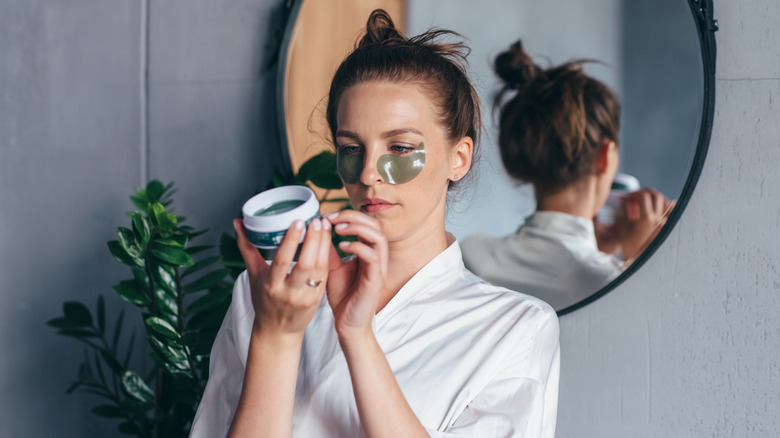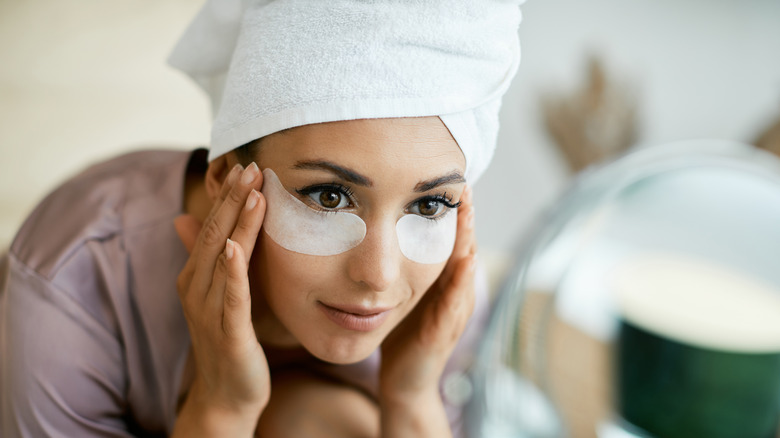Vitamin K Is Said To Reduce Dark Circles, But Does It Really Work?
If you've never heard of vitamin K, that's because it isn't as well-known as some other vitamins like vitamin C or B. Though it isn't as popular when compared to other vitamins, vitamin K is important to have in our bodies. This is because it can help with vital body functions like blood clotting and bone metabolism. You're likely already receiving a supply of vitamin K through vegetables, fruits, and animal proteins — common foods like spinach, grapes, and eggs all contain varying amounts of the vitamin.
However, vitamin K isn't just good for our bodies. There's evidence that it could help introduce a fresh glow to your complexion and improve cosmetic issues like dark circles. Dark circles are normally associated with a lack of sleep, but some people find that they can't get rid of them no matter what they do.
There may not be a main consensus on what really causes dark circles under your eyes, but here's how using vitamin K-infused skincare could help you to wave goodbye to yours.
The benefits of vitamin K haven't been studied in major detail yet
While there's no doubt that vitamin K can have positive effects, it's not certain if these benefits will translate well to your skin. If you still want to see if it can work for you, vitamin K can potentially improve a multitude of skin issues — yes, including dark circles. The way vitamin K works for dark circles is by changing the blood vessels surrounding the eye area.
However, board-certified dermatologist Dr. Y. Claire Chang says this effect has not been studied in enough detail for it to be touted as a dark circle cure. Speaking to Byrdie, Chang referred to a 2015 study in which participants were given vitamin K and caffeine pads that were soaked in an emu oil base. Though the outcome was positive in that participants reported fewer wrinkles and dark circles, Chang stated that the study cannot be used as a marker for vitamin K benefits due to it being "unclear whether the improvement in dark circles was due to vitamin K or from the caffeine and emu oil in this study."
The lesser-known vitamin could offer a whole host of positive effects on your skin
As well as potentially having a diminishing effect on dark circles, vitamin K could also help reverse the clock of aging. Board-certified dermatologist Dr. Sejal Shah confirms this., telling Real Simple that "vitamin K can help with a handful of leading aging factors, including the appearance of stretch marks, varicose veins, bruising, undereye puffiness, dark circles, and other conditions that have a vascular component."
In addition to its anti-aging properties, vitamin K's antioxidant properties could have a soothing effect on inflamed skin and improve skin conditions like eczema. While this initial info may sound promising, keep in mind that limited studies have been done on vitamin K and its benefits, so you might want to take the claims on the back of your skincare product with a pinch of salt. Moreover, though harmless to all skin types, dermatologist Julie Russak told Byrdie that those who have an increased risk for blood clots should speak to their doctor before using vitamin K products, as vitamin K can impact blood clotting in a way that may not be beneficial to you.


